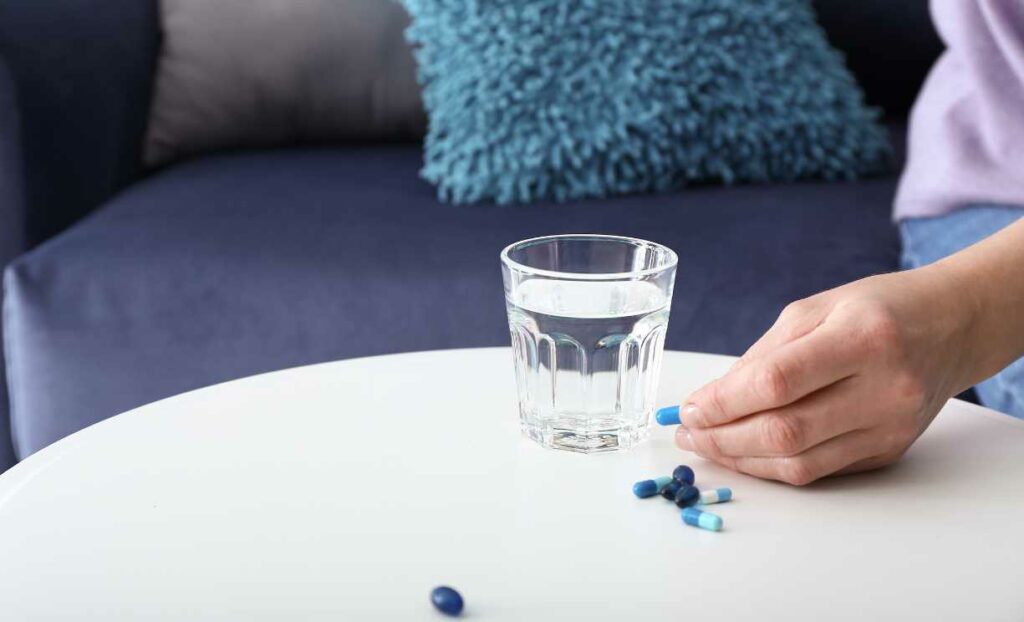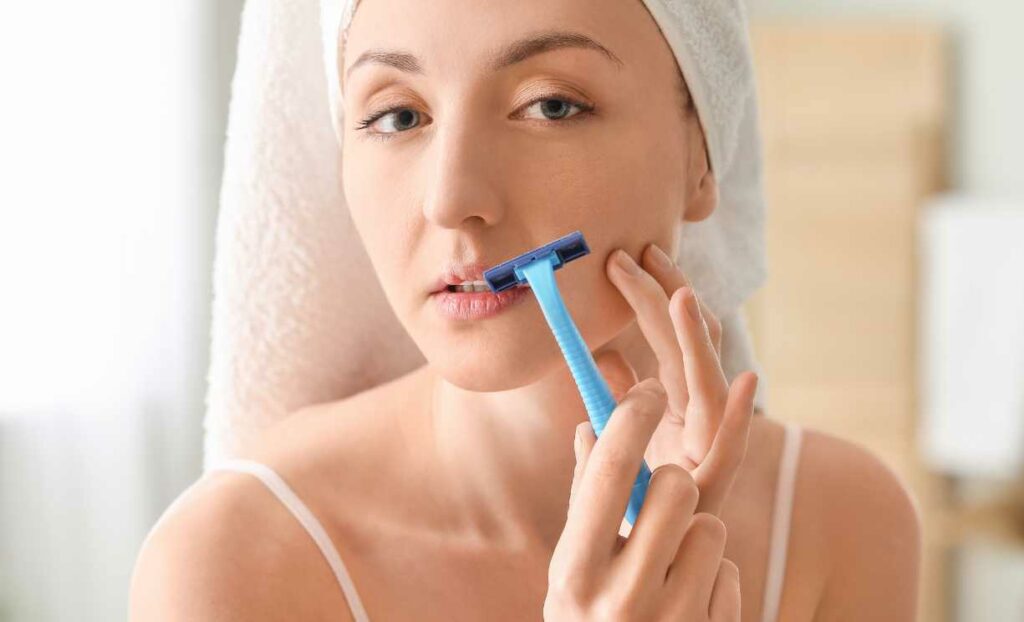Polycystic Ovary Syndrome (PCOS) is a hormonal disorder affecting many aspects of a woman’s health, and one common and distressing symptom is hirsutism, the excessive growth of unwanted hair. While lifestyle changes play a crucial role in managing PCOS, medications can offer targeted solutions to address hirsutism and its impact on self-esteem. In this blog, we’ll explore various medication options available for managing PCOS-related hirsutism and shed light on how they work.
Contents
Understanding PCOS Hirsutism
Hirsutism is a condition where women develop excess hair growth in areas where men typically grow hair. This includes the face, chest, back, and other body parts. In simple terms, it means having more hair than usual in these areas, and it’s often darker and coarser than the fine hair that many women have. The most common cause of hirsutism is hormonal imbalances, particularly elevated levels of androgens, which are male hormones.
While some degree of hair growth is normal, hirsutism can be distressing for many women, affecting their self-esteem. Managing hirsutism often involves addressing the underlying hormonal factors through lifestyle changes, medications, or other treatments, depending on the specific cause. If someone is concerned about hirsutism, consulting with a healthcare professional is essential for a proper evaluation and guidance on the best course of action.
Why Does PCOS Cause Hirsutism?
PCOS hirsutism is like dealing with unwanted hair growth on the body, particularly in places where men typically grow hair. In Polycystic Ovary Syndrome (PCOS), hormonal imbalances, specifically elevated levels of male hormones called androgens, lead to this excess hair growth. It’s a common and challenging symptom for many women, impacting their self-esteem.
To tackle this issue, various medications are available that work by either reducing the effects of androgens or balancing hormone levels. These medications, such as anti-androgen drugs, birth control pills, and topical creams, aim to slow down the growth of excess facial and body hair. Seeking guidance from healthcare professionals is crucial to finding the right solution tailored to individual needs and preferences.
Medications For PCOS Hirsutism
Managing hirsutism associated with Polycystic Ovary Syndrome (PCOS) often involves considering various medication options. These medications aim to address hormonal imbalances and reduce excessive hair growth. Here are common medication options for PCOS-related hirsutism:
- Anti-Androgen Medications:
- Spironolactone: This medication acts as an anti-androgen, reducing the effects of male hormones and slowing down the growth of excess facial and body hair.
- Flutamide: Another anti-androgen that may be prescribed to alleviate hirsutism symptoms.
- Oral Contraceptives: Birth control pills containing both estrogen and progestin help regulate hormonal fluctuations, reducing androgens and improving hirsutism.
- Topical Creams: Prescription creams containing eflornithine can be applied to areas with excess hair growth, inhibiting the growth of facial hair.
- Combination Therapies: Some healthcare providers may recommend a combination of anti-androgen medications, oral contraceptives, and topical treatments for a more comprehensive approach.
It’s crucial to note that the choice of medication depends on factors such as the severity of hirsutism, individual health considerations, and personal preferences. Consulting with a healthcare professional, typically a gynecologist or endocrinologist, is essential for a thorough evaluation and the development of a personalized treatment plan.
How Long Do Medicines Take To Work?
Medicines for PCOS Hirsutism work at different speeds depending on the type of medication and what it’s treating. Some medications, like pain relievers, can work relatively quickly, providing relief within a short time. Others, especially those with chronic conditions or hormonal imbalances, may take more time to show noticeable effects. It’s important to follow the prescribed dosage and be patient, as many medications need consistent use to build up in the body and achieve their full effectiveness. If you have questions about how long a specific medication may take to work, it’s always best to consult with your healthcare provider, who can offer personalized information based on your medical history and condition.





